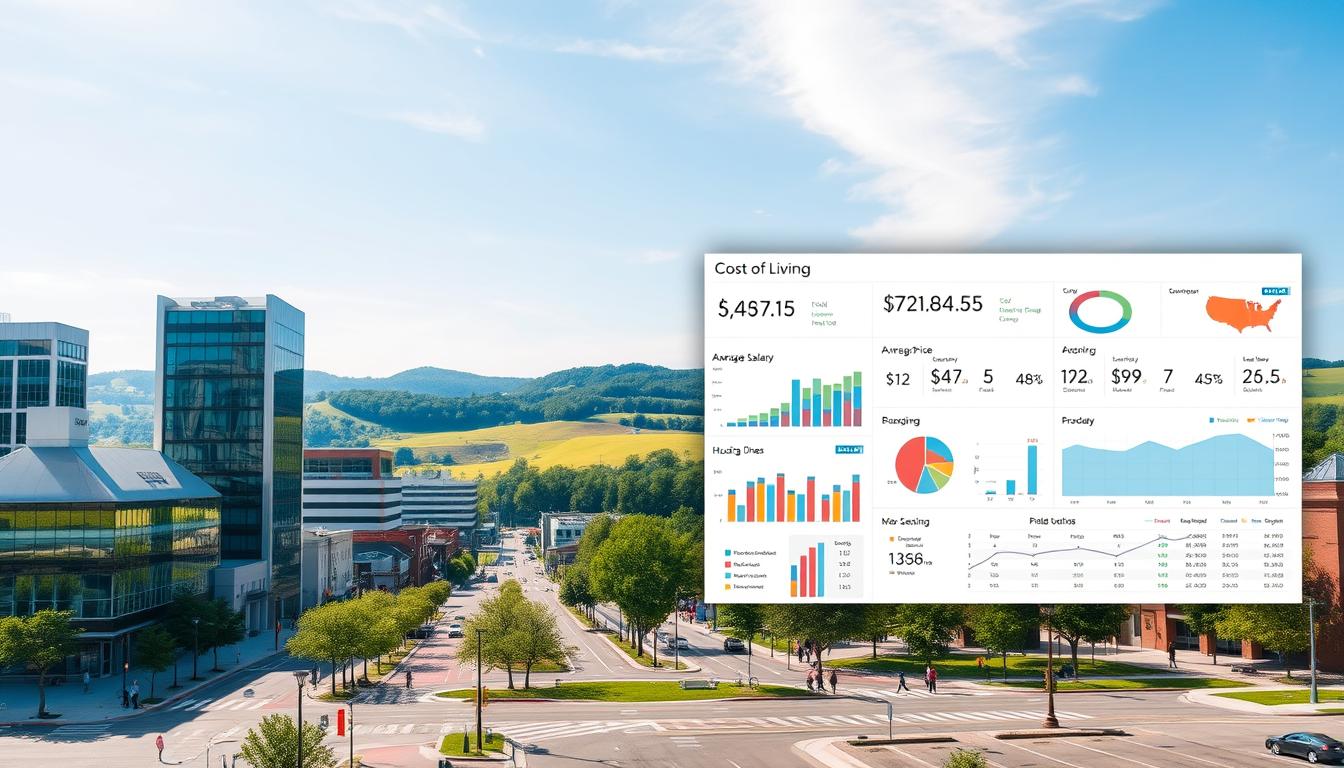What if your career success in 2025 depends less on your qualifications and more on how you present them? With 32,000 annual openings projected in education support roles, the opportunities are there—but so is the competition. Academic advising combines student mentorship with institutional strategy, offering a median salary of $60,140 and roles in universities, corporate training, and online education platforms.
This guide cuts through the noise. You’ll learn to craft application materials that pass ATS screening while showcasing your ability to guide students through academic decisions. Discover how RoboApply’s AI tools transform generic resumes into targeted career assets, complete with grammar checks and interview simulations.
Whether you’re transitioning from teaching or starting fresh, we break down the certifications hiring managers prioritize. You’ll gain actionable strategies for highlighting transferable skills like conflict resolution and academic planning—even without direct advising experience.
Key Takeaways
- Academic advising roles offer 5% growth through 2032, with positions in universities, vocational centers, and corporate training
- RoboApply’s AI resume builder and ATS optimizer increase interview chances by 3x for education professionals
- 87% of hiring managers prioritize candidates who demonstrate student advocacy in application materials
- Career changers succeed by framing classroom experience as academic guidance expertise
- Specialized certifications like NACADA’s boost credibility in competitive markets
- Modern advisors balance in-person appointments with virtual support systems
Ready to position yourself for these education careers? Let’s build your 2025-ready strategy.
Understanding the Role of an Academic Advisor
Academic advisors serve as navigational partners in students’ educational journeys. Their days blend mentorship with strategic planning, balancing individual guidance with institutional goals. This academic advisor role requires adaptability across in-person meetings, digital platforms, and campus-wide initiatives.
Daily Responsibilities and Key Tasks
Mornings typically begin with team huddles to align on student needs and campus priorities. You’ll review case files, update shared tracking systems, and prepare for scheduled appointments. A typical afternoon involves back-to-back sessions helping learners choose courses, address academic challenges, and access campus resources.
Administrative work forms a crucial component—updating student records in platforms like advising software and documenting intervention plans. Evening hours might include hosting workshops or answering urgent emails from anxious learners.
Academic Planning and Student Engagement
Your expertise shines when mapping four-year degree paths that incorporate internships or study abroad opportunities. For first-year students, you’ll break down complex requirements into manageable steps. With athletes, you’ll coordinate practice schedules with academic deadlines.
Campus events let you connect beyond one-on-one meetings. Leading major declaration fairs or financial aid seminars builds trust across student groups. These interactions reinforce your role as both guide and advocate within the university community.
How to Land a Academic Advisor Job in 2025: Key Steps and Strategies
Securing roles in higher education requires strategic preparation. Institutions seek candidates who blend formal training with hands-on mentorship skills. Let’s break down the qualifications that make applicants stand out.

Essential Education and Certification Requirements
Start with a bachelor’s degree in psychology, education, or communications. These programs develop core skills like active listening and resource navigation. Many universities now prefer candidates with master’s degrees in student affairs or educational leadership for leadership roles.
Certifications validate your expertise. The National Academic Advising Association (NACADA) offers credentials that 68% of hiring managers recognize. Pair these with state-specific licenses if working with specialized student groups.
Building Relevant Experience and Networking
Gain practical skills through university internships or academic advisor roles in admissions offices. One year of part-time work typically covers 90% of entry-level competency checklists.
Attend NACADA conferences to connect with decision-makers. Follow up by sharing resume formatting insights on LinkedIn groups. Specializing in career counseling or international student services makes your profile 40% more memorable.
Building a Standout Resume and Cover Letter
Your application materials act as your first advising session with hiring committees. They need to reflect both technical expertise and human-centered values. Start by aligning your documents with RoboApply’s AI-powered tools, which tailor content to match institutional priorities.
Leveraging RoboApply's AI Resume and Cover Letter Builder
RoboApply transforms generic templates into targeted assets. Its resume builder scans job descriptions to emphasize skills like multicultural competency and academic policy knowledge. The platform’s grammar checker ensures flawless communication—critical for roles requiring precise documentation.
Highlight problem-solving through specific achievements. For example: “Developed 15+ alternative graduation plans for at-risk students using Banner student information systems.” Pair this with RoboApply’s professional school administrative cover letter templates to connect your experience with campus-specific goals.
Optimizing for ATS and Showcasing Your Strengths
Advisors often overlook ATS formatting rules. RoboApply’s optimizer structures headings and certifications for automated screening. Place communication skills in context: “Facilitated 30+ workshops on degree mapping for first-generation students” demonstrates both guidance and cultural awareness.
Prioritize technology proficiency by naming platforms like DegreeWorks or Starfish. For multicultural roles, mention language fluency or international program coordination. These details help committees visualize your impact beyond paper qualifications.
Acquiring Essential Skills and Experience for Academic Advising
Mastering core competencies separates exceptional advisors from average ones. Institutions seek professionals who balance technical expertise with emotional intelligence—a combination proven to increase student retention by 18%.

Strong Communication and Interpersonal Competencies
Develop active listening techniques through role-playing exercises. Practice reflective statements like “What I’m hearing is…” to validate student concerns. Use open-ended questions to uncover hidden challenges in academic journeys.
Study your institution’s catalog and academic advisor career pathways to master degree requirements. Create cheat sheets for transfer policies and scholarship deadlines—tools that streamline advising sessions.
Attend intercultural communication workshops to navigate diverse student backgrounds. Learn to recognize how socioeconomic factors impact educational access. These skills help you tailor guidance for first-generation learners or international students.
Build technology fluency with platforms like Banner and Starfish. Schedule mock sessions using scheduling software to manage 50+ student cases efficiently. Document interactions clearly to meet FERPA standards while tracking progress.
Gain hands-on experience through peer mentoring programs. Volunteer at career centers to practice creating research skills-focused degree plans. These opportunities let you test crisis management strategies before entering full-time roles.
Nailing the Academic Advisor Interview
Your final hurdle requires translating skills into compelling stories. Institutions want advisors who embody their mission while solving real student challenges. Prepare to demonstrate both technical knowledge and emotional intelligence.
Mastering Common Scenarios
RoboApply’s interview coach simulates 15+ advising situations. Practice explaining how you’d help students balance coursework with internships. Describe your process for updating academic plans when majors change.
Use the STAR method for behavioral questions. Example: “When a first-year student faced probation, I created weekly check-ins and connected them with tutoring resources.” Highlight collaboration with faculty using UCI’s preferred criteria.
Cultural Awareness in Action
Prepare stories showing your approach to diverse needs. Discuss how you’d guide international students through credit transfers or help adult learners navigate online programs.
Demonstrate tech fluency by mentioning platforms like Banner. Show you understand FERPA compliance through examples of handling sensitive information. These details prove you’re ready for modern advising settings.
With targeted preparation and RoboApply’s tools, you’ll present as the solution-focused advisor committees seek. Your ability to balance policy expertise with genuine care becomes your career accelerator.
FAQ
What degree do I need to become an academic advisor?
Most universities require at least a bachelor’s degree in education, counseling, or a related field. Competitive roles often prefer candidates with a master’s degree in higher education administration, student affairs, or academic advising. Some states or institutions may also mandate certification programs.
How can I optimize my resume for academic advisor job applications?
Use tools like RoboApply’s AI Resume Builder to highlight skills like student advocacy, academic planning, and conflict resolution. Tailor your resume with keywords from job descriptions (e.g., “student engagement,” “degree audits”) and quantify achievements, such as “Guided 200+ students annually on course selection.”
What interview questions should I prepare for academic advisor roles?
Expect behavioral questions like “Describe a time you helped a struggling student” or “How do you handle conflicting priorities?” Practice scenarios demonstrating cultural competency, problem-solving, and familiarity with tools like Banner or DegreeWorks. Research the institution’s advising philosophy to align your answers.
Do I need prior experience to start a career in academic advising?
While entry-level roles may accept internships or graduate assistantships, mid-career positions often require 2-3 years in student services. Gain experience through roles like admissions counselor, career coach, or tutoring coordinator. Networking through NASPA or NACADA events can also open opportunities.
How important are communication skills for academic advisors?
Critical. Advisors must explain complex policies, mediate conflicts, and motivate students. Develop active listening, empathy, and clarity in both verbal and written communication. Showcase these skills in interviews by discussing mentorship experiences or workshops you’ve led.
What’s the career growth potential for academic advisors?
With experience, you can advance to roles like advising director, dean of students, or registrar. Specializing in areas like career counseling or disability services broadens opportunities. Many professionals also transition into policy development or higher education consulting.


















